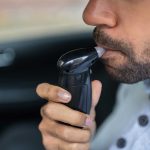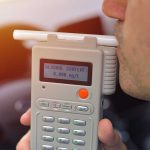Alcohol use disorder (also called alcohol addiction) is a serious disease that makes you feel unable to stop drinking alcohol despite negative consequences. Many people with the condition benefit from medication-assisted treatment (MAT).
What Is Medication-Assisted Treatment (MAT) For Alcohol Use Disorder?
Medication-assisted treatment (MAT) refers to the use of medications (alongside mental health counseling) to help people recover from addictions to alcohol and opioids (also called opiates). It’s available on an inpatient or outpatient basis.
According to the Substance Abuse and Mental Health Services Administration (SAMHSA), MAT helps people with addiction:
- stay in addiction treatment
- gain and maintain employment
- reduce criminal activity
- reduce the risk of certain health problems, including HIV and hepatitis C
- reduce the risk of adverse birth outcomes (such as preterm birth) among patients who are pregnant
All of the medications used in MAT programs have been approved by the United States Food and Drug Administration (FDA) to help treat substance use disorder. Medications approved to treat alcohol addiction include:
Acamprosate
Acamprosate (brand name Campral) is a medication that reduces alcohol cravings in people who have already stopped drinking.
It’s prescribed five days after a person’s last drink and taken in tablet form three times a day. Side effects may include loss of appetite, diarrhea, upset stomach, dizziness, anxiety, and trouble sleeping.
Studies show that acamprosate will not work if you continue to engage in alcohol use, illicit drug use, or prescription drug abuse.
Disulfiram
Disulfiram (brand name Antabuse) is a medication that discourages drinking by causing unpleasant effects when you consume alcohol. These effects include:
- nausea and vomiting
- weakness
- blurry vision
- headache
- flushing of the face
- chest pain
- sweating
- trouble breathing
- anxiety
- confusion
In most cases, the effects start about 10 minutes after you drink and last for 1 hour or more.
Like acamprosate, disulfiram comes in tablet form and is taken once a day. You should only use the drug if it’s been more than 12 hours since your last drink.
Naltrexone
Naltrexone is a medication that discourages drinking by blocking the euphoric effects of alcohol. Side effects may include nausea, vomiting, diarrhea, drowsiness, blurry vision, and trouble sleeping.
There are two forms of naltrexone: a tablet form (prescribed under the brand names Depade and ReVia) and an injectable form (prescribed under the brand name Vivitrol).
Depending on your needs, the tablet form may be taken once a day, every other day, every third day, or every day except Sunday. The injectable form is administered once a month.
Naltrexone treats not only alcohol use disorder but also opioid use disorder (also called opioid addiction). That’s because it’s an opioid agonist, which means it blocks the effects of opioids.
MAT & Alcohol Withdrawal
It’s important to note that none of the above medications reduce alcohol withdrawal symptoms. That’s why you should generally not start MAT until you have completed a medical detoxification program.
During medical detox, doctors will help you safely get alcohol out of your system with minimal withdrawal symptoms.
Types Of Mental Health Counseling Used During MAT
While the above medications are helpful, they can’t replace mental health counseling.
Mental health counseling helps you develop healthy attitudes and behaviors surrounding recovery, which reduces your risk of relapse. It can also help treat any underlying mental health concerns, such as anxiety or bipolar disorder, that contribute to your alcohol abuse.
The most common types of mental health counseling used during MAT include:
Cognitive-Behavioral Therapy (CBT)
During CBT, behavioral health care professionals will help you identify your triggers (people, places, or other things that make you want to abuse alcohol). Common triggers include:
- people you used to drink with
- parties, weddings, and other celebratory events
- stress, grief, and other unpleasant feelings
Once you identify your triggers, your therapist will teach you coping skills to manage them. Popular coping skills include meditating, exercising, journaling, and spending time with sober friends.
Motivational Enhancement Therapy (MET)
During MET, a therapist will help you improve your motivation to stay sober. You’ll identify the advantages of avoiding alcohol consumption, set specific recovery goals, and develop the skills you’ll need to meet those goals.
According to the National Institute on Drug Abuse, MET is one of the most effective ways to help people with alcohol addiction stay engaged in their treatment plans.
Family Therapy
Family support is essential to the treatment of alcohol use disorder. In family therapy, your loved ones will learn specific ways to help you maintain recovery. The therapist can also help you resolve family conflicts, including conflicts related to your alcohol dependence.
To learn more about treatment options for alcohol addiction, please contact Northeast Addictions Treatment Center. Our substance abuse treatment programs offer comprehensive, evidence-based care for people living with substance use disorders.
Sources
- National Institute on Alcohol Abuse and Alcoholism — Understanding Alcohol Use Disorder
- National Institute on Drug Abuse — Motivational Enhancement Therapy (Alcohol, Marijuana, Nicotine)
- Substance Abuse and Mental Health Services Administration — MAT Medications, Counseling, and Related Conditions
- Substance Abuse and Mental Health Services Administration — Medication-Assisted Treatment (MAT)
Written by
Northeast Addition Editorial Team
©2024 Northeast Addition Center | All Rights Reserved
This page does not provide medical advice.





